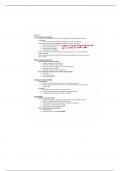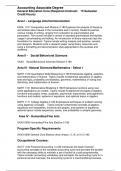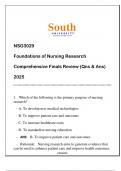Class notes
Psy 254 Chapter 2 and 3 Notes
- Course
- Psy 254
- Institution
- University Of Rhode Island
This is a comprehensive and detailed note on PSY 254 - Chapter 2 and 3: Research in Abnormal Psychology; Models of Abnormality. Essential Study Material!!
[Show more]





